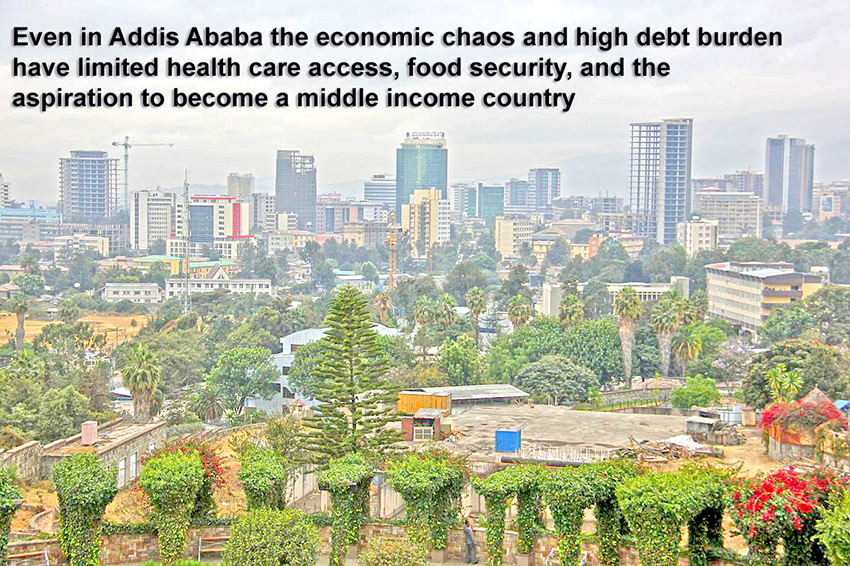
As a result of war debt and chaos of failing to find resolution even in the capital of Ethiopia health care access, food security, and the dream of becoming a middle income nation have been dashed. Imagine for a moment what the Abiy Ahmed led Ethiopian government could have accomplished with estimated at least $6 billion spent on war since November 2020. This high expenditure has caused literally irreconcilable debt affecting the health and well being of all Ethiopians. Most of us remember in college learning the “guns vs butter” laws of economics but it appears the Ethiopian leadership skipped that class. Before Abiy Ahmed came to power in 2018 Ethiopia had experienced almost a 10% annual economic growth and had hoped to reach a state of at least 25% of the population having a middle income by world standards. Instead by refusing to make progress in peaceful resolution hoping that Tigray will just starve to death the Ethiopian government has drastically reduced the quality of life for all Ethiopians.
The average healthcare expenditure per capita in Ethiopia has likely been reduced from an average $23 per capita per year to $18. While most developed countries spend close to 10% of their gross domestic product providing health care for their citizens as a priority for Ethiopia it is only 4%. Under Abiy Ahmed there have been some developments in private health care in a few of the larger cities for the 10% of the population considered middle class who make more than 4000 birr a month. With current birr value at about 6 cents to the dollar this equals about $240 a month.
While many assume that Ethiopia has a socialized health care system without any beneficiary payment this is wrong. Except of the first month of life most health care even at government facilities requires co-pays averaging $32 per house hold per year. The high inflation of decreasing availability of jobs is making it hard for poor and middle class families to access healthcare because they cannot afford the out of pocket costs.
If the Ethiopian government had spent another $2 billion on healthcare instead of defense they could have almost doubled the current healthcare budget. More clinics and more outreach could result in better treatment of chronic illness such as diabetes, hypertension, cancer, and HIV. While only about 20% of pregnant women in Ethiopia have medically assisted delivery this could be dramatically increased reducing maternal complications and improving infant mortality. Millions cannot afford to pay for subscriptions. Increasing the availability of surgical care for treatable conditions now considered essential standard worldwide has severely dampened.
For this first time in a generation circumstances of drought, locusts, poor agricultural support, and a lack of general attention to both fertile farm lands and dryland farming are resulting in combination with war to cause the worst food shortage in a generation. Millions of displaced persons and the war environment have complicated food production and distribution even outside the besieged state of Tigray. Ethiopia normally needs $260 per capita per year for food. If another $2 billion was spent on food instead of defense an additional 10% of the poor who make up the majority of the population could be feed.

